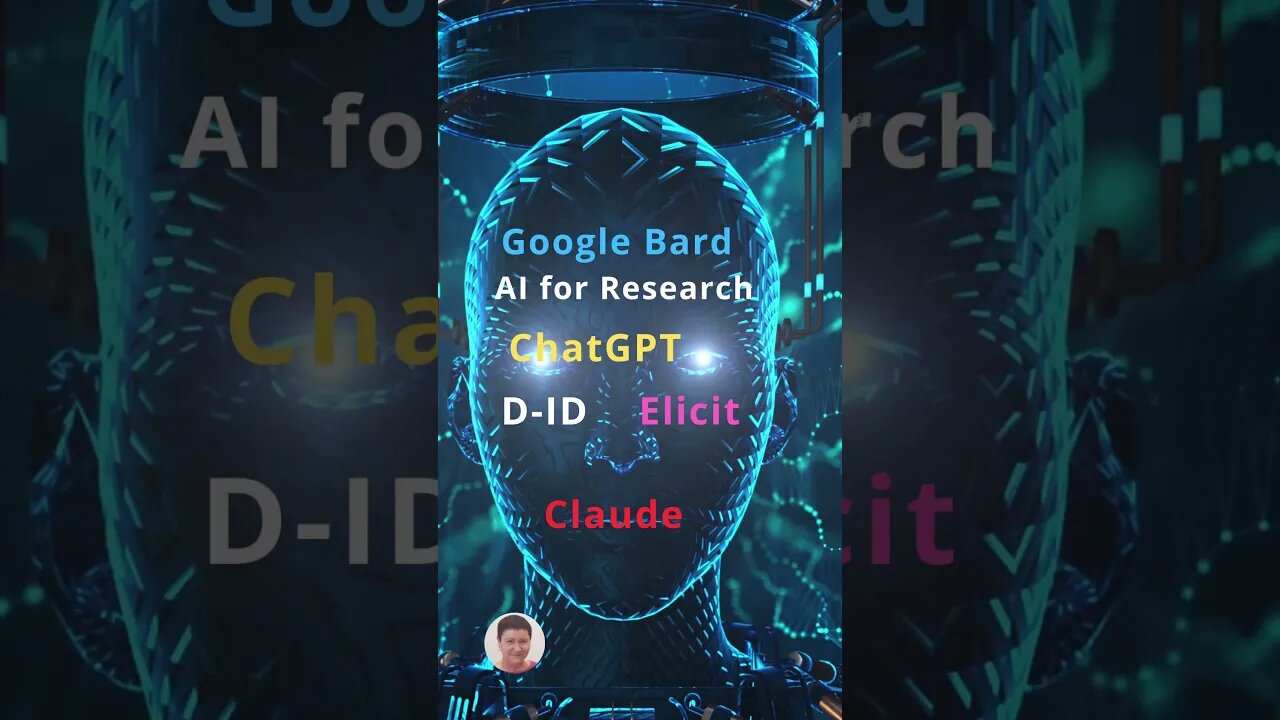Premium Only Content

AI for Research in Education
#AI #Research #airesearcher #education #instruction #Learning
Artificial intelligence (AI) is rapidly transforming the research landscape in education. AI-powered tools are being used to automate tasks, analyze data, and generate insights that would have been impossible to achieve just a few years ago. AI has the potential to revolutionize research in education. However, there are also some challenges that need to be addressed before AI can be used to its full potential.
Here are some of the ways that AI is being used in research in education today:
1. Automating tasks: AI can be used to automate many of the tedious and time-consuming tasks involved in research, such as data entry, literature reviews, and data analysis. This frees up researchers to focus on more creative and strategic work.
2. Analyzing data: AI can be used to analyze large datasets that would be too difficult or time-consuming to analyze manually. This can help researchers to identify patterns and trends that would have otherwise been overlooked.
3. Generating insights: AI can be used to generate insights from data that would be difficult or impossible for humans to identify. This can help researchers to make new discoveries and develop new theories.
Some of the benefits of using AI in research in education:
1. Increased efficiency: AI can help researchers to automate tasks, which can free up time for them to focus on more creative and strategic work.
2. Improved accuracy: AI can help researchers to analyze data more accurately and identify patterns and trends that would have otherwise been overlooked.
3. New insights: AI can help researchers to generate new insights from data that would have been difficult or impossible for humans to identify.
4. Better decision-making: AI can help researchers to make better decisions about policy, intervention, and curriculum development.
Some of the challenges of using AI in research in education:
1. Bias: AI models can be biased, which can lead to inaccurate results.
2. Interpretability: AI models can be difficult to interpret, which can make it difficult to understand why they are making the decisions they are making.
3. Privacy: AI models can collect and use a lot of data, which raises privacy concerns.
-
 33:57
33:57
Stephen Gardner
4 hours agoHOLY CRAP! Trump Just Ordered the UNTHINKABLE on Venezuela – Rubio Demands It!
35.6K40 -
 6:15:38
6:15:38
Dr Disrespect
8 hours ago🔴LIVE - DR DISRESPECT - ARC RAIDERS - SKILL TREE EXPERT
146K7 -
 5:49
5:49
Buddy Brown
7 hours ago $3.75 earnedI Tried to WARN YOU Congress Would SNEAK It In! | Buddy Brown
25K22 -
 LIVE
LIVE
LFA TV
22 hours agoLIVE & BREAKING NEWS! | WEDNESDAY 12/17/25
883 watching -
 1:12:53
1:12:53
vivafrei
5 hours agoEulogizing My Pup Pudge; Did Ilhan Omar Commit Immigration Fraud? Brown Shooting Debacle AND MORE!
73.9K57 -
 1:02:58
1:02:58
Russell Brand
7 hours agoDoes the Bible Foretell Today’s Conflicts? — Dinesh D’Souza - SF664
106K32 -
 19:05
19:05
Cash Jordan
8 hours agoIllegals “DISMANTLE” LA Gated Mansions... Millionaires HOMELESS as Looters Take REPARATIONS
31.8K78 -
 1:01:29
1:01:29
The Tom Renz Show
4 hours agoSusie Wiles vs Vanity Fair vs Truth
18K8 -
 LIVE
LIVE
Film Threat
1 day agoFUNERAL FOR A FRANCHISE: STAR TREK - A SPECIAL GLOBAL EVENT | Film Threat Live
136 watching -
 1:02:04
1:02:04
Jeff Ahern
5 hours ago $1.15 earnedNever Woke Wednesday!
22.4K4